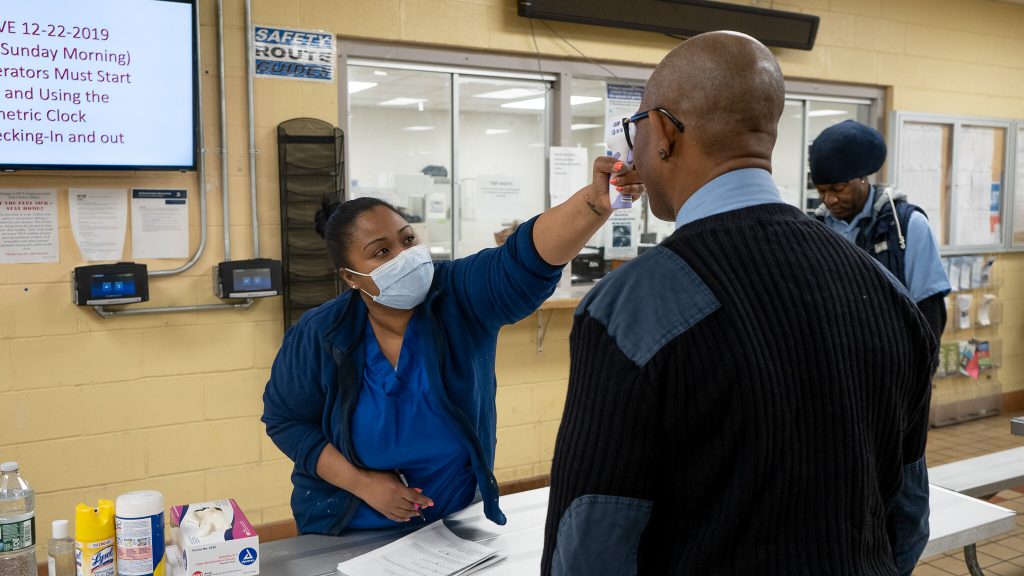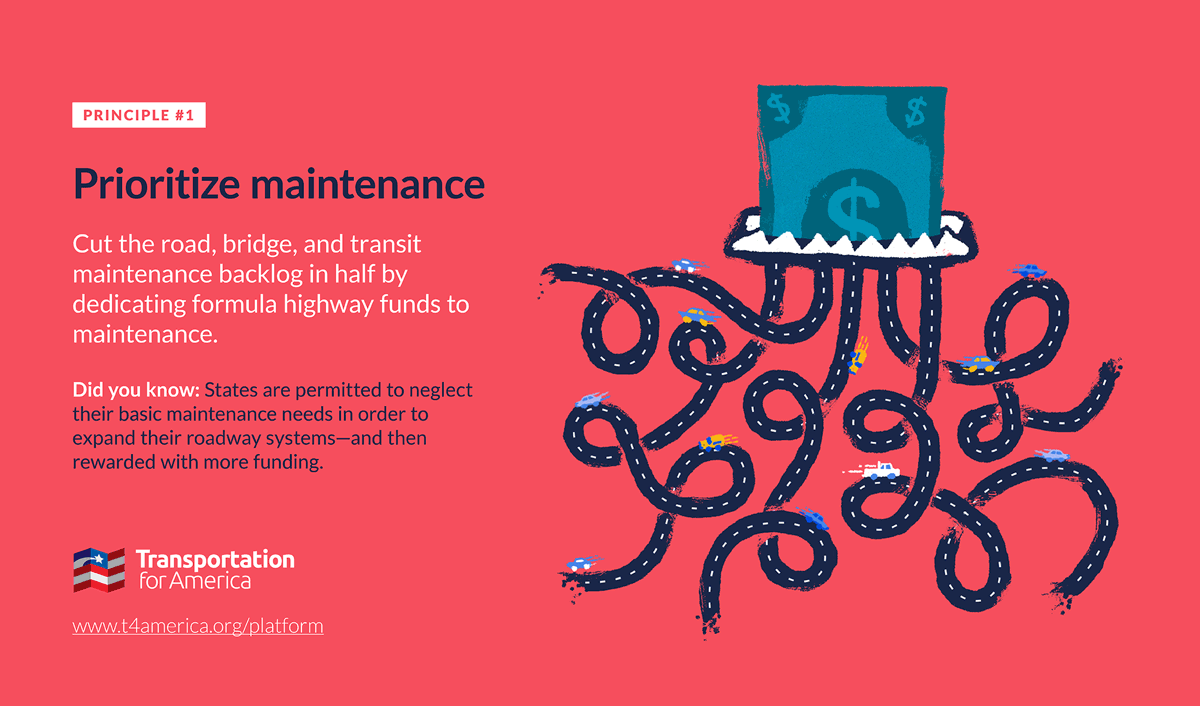Transit workers and riders: We want to hear from you
Transit personnel and the essential workers riding transit to reach their jobs at hospitals and grocery stores are the frontline of the COVID-19 pandemic. Elected officials need to hear what it’s like operating and riding transit in these conditions in order to provide more emergency funding. Please send us your story.
Public transportation is essential, even and especially in the midst of a pandemic. Without transit, scores of essential personnel wouldn’t be able to get to work—that’s millions of healthcare, grocery, and other essential workers who are supporting the rest of us at home and saving lives.
As Congress considers another COVID-19 relief package, we know that transit agencies need more emergency operations funding to make sure that workers and riders are protected from the virus. Transit needs funding to protect their employees, maintain sufficient service to prevent crowding for people counting on it, and avoid layoffs and other dramatic actions that will cripple transit for years after this immediate threat.
Your stories can empower our advocacy and push Congress to pass more emergency funding for transit. You can tell us your experience operating or riding transit using the form at the bottom of this post, email or tweet us a short video, or schedule a time to talk to us on the phone.
Transit workers are putting their lives on the line
Transit workers are at incredibly high risk of contracting COVID-19, but they don’t have to be with the right resources, such as PPE, sick pay, and requiring riders to wear masks. Bus drivers in particular are at a higher risk due to closer proximity to riders. Some transit agencies have started limiting boarding to the rear door and waiving fares to try and protect drivers, but this isn’t enough by itself and it compounds the financial strain on transit agencies.
In addition, TransitCenter found that transit workers’ high risk of dying from COVID-19 is related to existing health inequities, as transit vehicle operators are more likely to be people of color or low-income. Race and income is a huge predictor of health outcomes. TransitCenter also found that frontline transit workers are more likely to not have health insurance than transit personnel who are able to work from home.
This is unacceptable. Transit agencies need resources to keep workers and riders safe. Congress needs to pass more emergency funding for transit in the next COVID-19 relief package—and your stories can help get us there.





















Pingback: Pandemic Best Practices for Transit
Pingback: Transportation For America Here are 4 things transit agencies can do to fight for more funding - Transportation For America